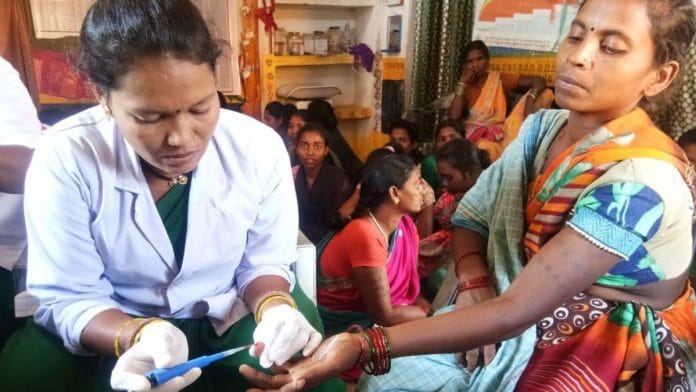For years, both through my professional work and beyond, I’ve observed a persistent reality: the narrative and practices surrounding women’s health in India have remained largely unchanged. While things have evolved and significant shifts have been made, it often feels incremental compared to the scale of the issues. Without a sustained, meaningful dialogue and committed action for creating a world where women’s health and rights are actively prioritised, we will not see real change.
In India, women’s health is often viewed through a narrow lens, focusing on specific life stages or achievements. Even anaemia, a condition that affects more than half the women in this country, gets attention only during pregnancy. What about the long-term, debilitating effects anaemia can have on a woman’s overall health, independent of her identity as a mother? What about the everyday challenges it poses in a woman’s life?
As an ambassador for the United Nations Population Fund (UNFPA), I had the opportunity to work on the ground with slum-dwelling women in Mumbai. I discovered that there was general awareness in the community about a health condition that causes women to appear pale and is linked to a blood disorder. However, the severity of the issue was often disregarded with levity.
Anaemia, primarily a result of poor diet, is influenced by deeply entrenched gender roles. In most households, especially in rural settings, women prioritise their families’ needs over their own. It is not uncommon in India for women to be the last ones to eat, often after the most nutritious portions have been consumed by the rest of the family members.
This self-abnegation, conditioned into women, has far-reaching consequences not only for themselves but also for their families. It perpetuates a cycle of intergenerational anaemia.
Apart from societal attitudes, affordability also plays a crucial role. I have met women who, despite their best efforts, find themselves trapped in this cycle due to limited access to nutritious food and healthcare.
Iron-rich foods like meat, fish, and leafy greens can be out of reach for many due to their cost. Even when available, a lack of awareness about their importance can lead to insufficient consumption. Studies show that many women lack basic nutrition knowledge and are unaware of the essential food groups required for a balanced diet.
Also read: Adventure tourism is not accessible for women—sexual harassment, safety risks
Health literacy among women
Anaemia is both a cause and consequence of poor nutrition and health. It is not just about eating enough, but also getting the right nutrients. Traditionally, the Indian diet has been rich, balanced, and nutritious. However, as food practices have evolved, we have moved away from balanced diets and turned to processed foods. This shift, compounded by a lack of awareness, further exacerbates the issue.
Experts underscore that dietary habits are learned and can evolve throughout life. This opens up a world of possibilities for improving nutrition and combatting anaemia. Though changing these habits is not an easy task, it is doable—and essential. It requires a cultural shift toward recognising that women’s health is central to the well-being of families, communities, and the nation as a whole.
We need to empower women with the knowledge they require to make informed dietary choices. Indian women play a crucial role in shaping their families’ eating habits and in cooking nutritious meals. Educating them on balanced diets, nutritional needs, and healthy cooking methods will bring about a wave of change.
Existing programmes should look at increasing health literacy, specifically targeting women. This includes understanding the links between nutrition and health as well as learning to prevent and manage diet-related health issues.
Building support networks and peer support groups where women can share knowledge and motivate each other to adhere to healthy eating practices can be instrumental. Along with improving their health awareness, we must create an environment where women have access to the foods they need.
Women’s health is the foundation of our nation’s health. We must discard the social norms that place women’s needs below everyone else’s and embrace a mindset that prioritises their well-being.
It is about more than just food—it is about dignity and equality. By empowering women with the knowledge and access they need to nourish themselves, we are not just fighting anaemia, we are shaping a future where every woman has the health and strength to thrive.
Shabana Azmi is a renowned film and theatre actor. Views are personal.
(Edited by Prasanna Bachchhav)






